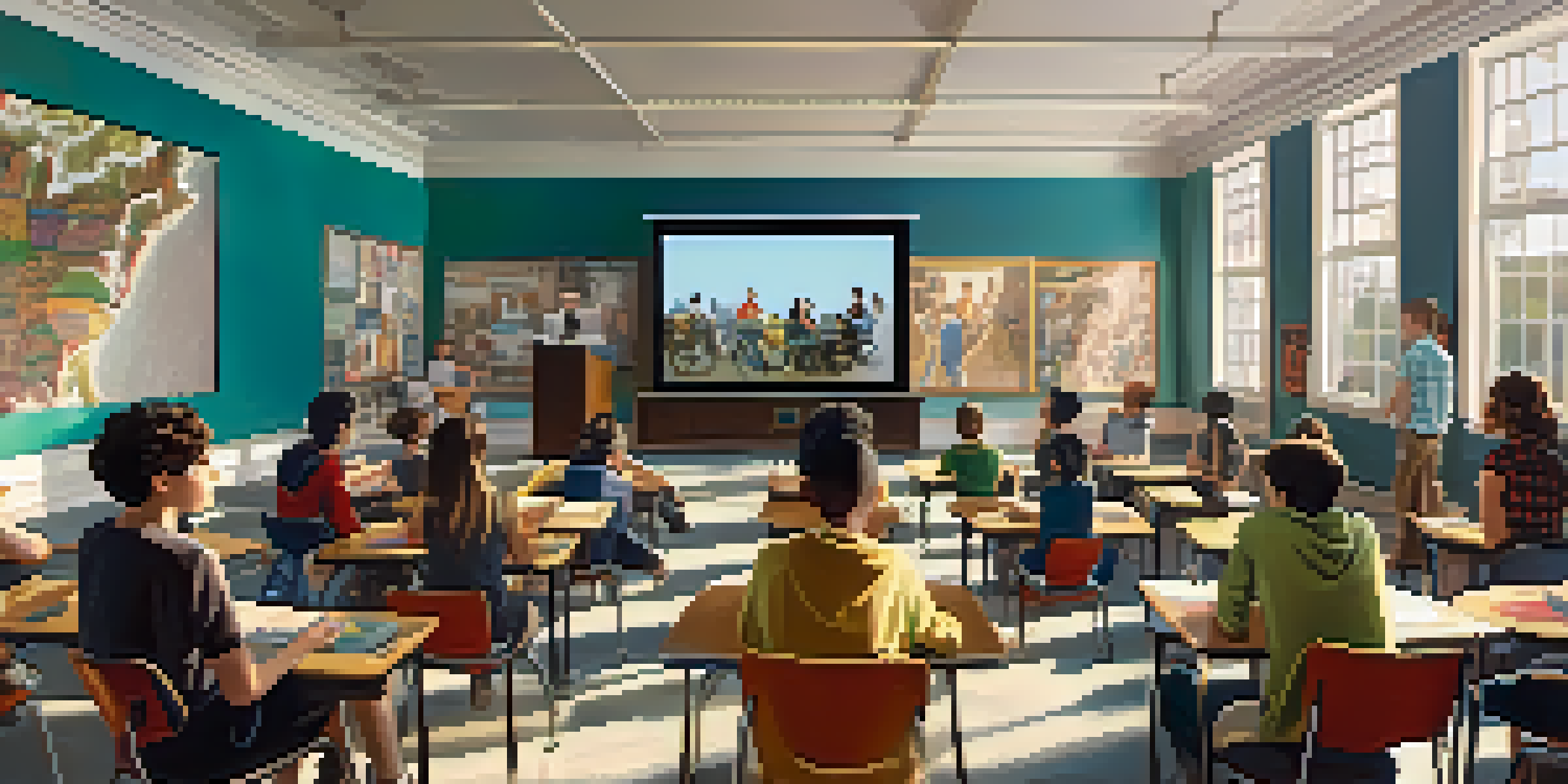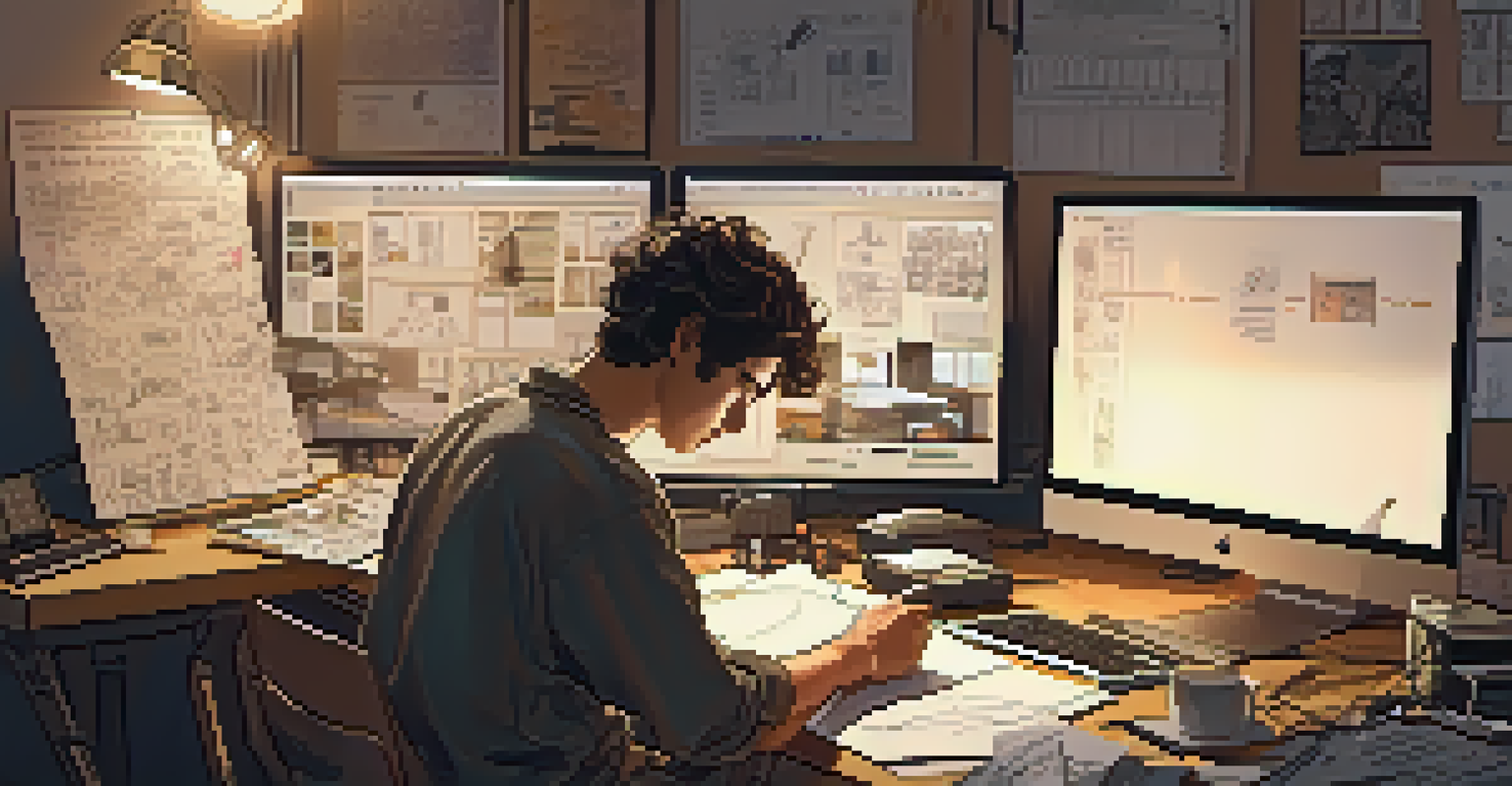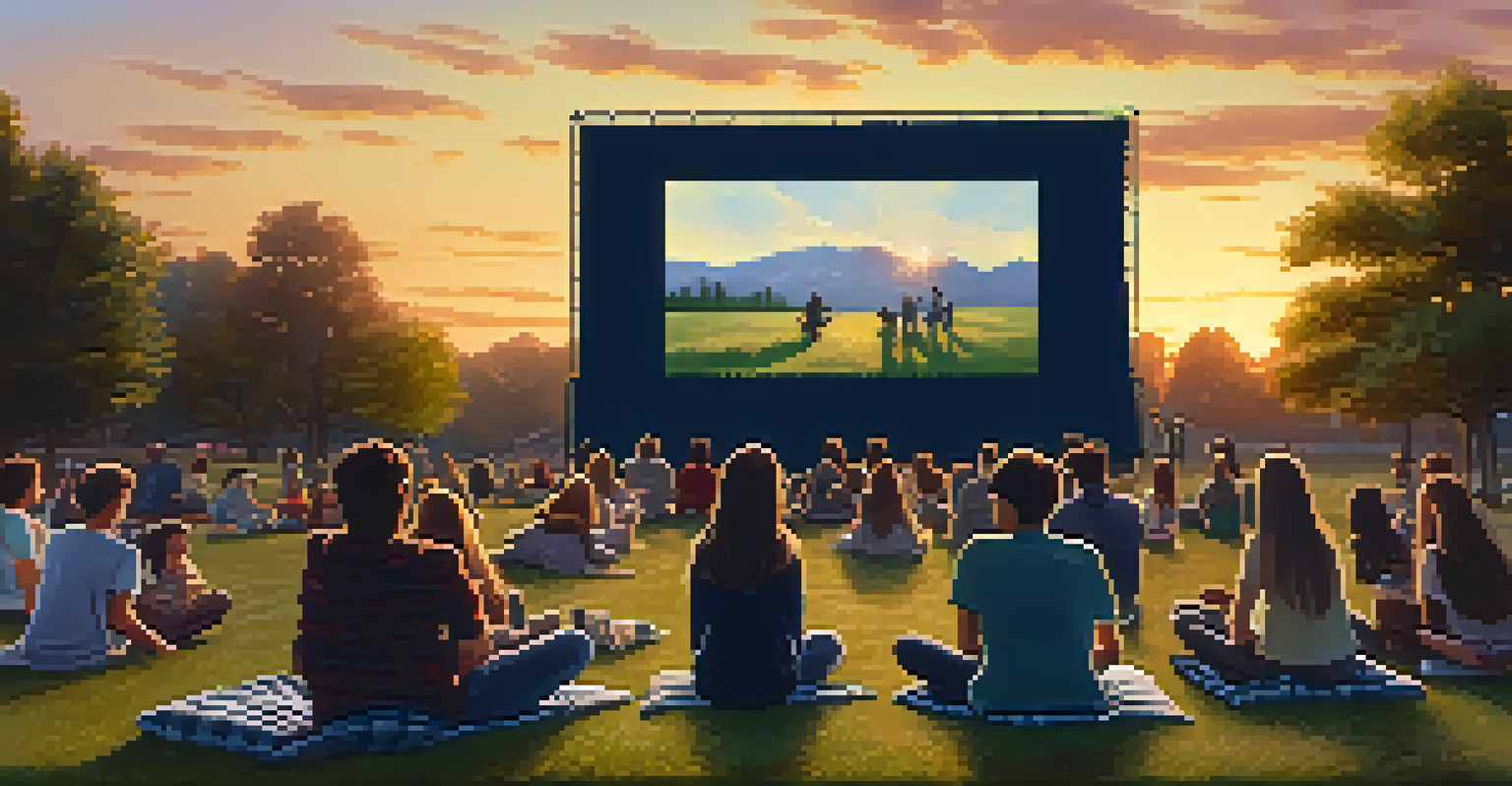How Film Critique Enhances Media Literacy in Students

Understanding Media Literacy Through Film Analysis
Media literacy involves the ability to access, analyze, evaluate, and create media in various forms. By engaging with films, students learn to dissect narratives, visuals, and sound, enabling them to comprehend how media shapes perceptions. This foundational understanding is essential in a world inundated with information where discerning fact from fiction can be challenging.
Media literacy is the ability to access, analyze, evaluate, and create media in various forms.
When students analyze films, they are not just watching for entertainment; they’re learning to identify the techniques filmmakers use to convey messages. For instance, a film's use of lighting can affect our emotions, while editing can alter the story's pace. This awareness fosters critical thinking, empowering students to question and interpret media with a more discerning eye.
Ultimately, film analysis serves as a gateway to broader discussions about media. It encourages students to reflect on how different genres and formats influence their views and beliefs. This reflective process is a key component of media literacy, helping students become informed consumers of media.
Developing Critical Thinking Skills Through Film Critique
Critique involves not just judgment but also a deep analysis of content, themes, and techniques. By critiquing films, students learn to articulate their thoughts clearly and support their opinions with evidence. This practice translates to stronger critical thinking skills that are applicable beyond the classroom.

For example, when students critique a character's decision in a film, they must consider motivations, context, and potential consequences. This exercise encourages them to explore multiple perspectives and engage in healthy debate with peers, honing their ability to discuss complex ideas respectfully and thoughtfully.
Enhancing Critical Thinking Skills
Analyzing films helps students articulate thoughts and engage in respectful debates, strengthening their critical thinking abilities.
Moreover, developing a critical lens through film critique prepares students for real-world scenarios. They become adept at navigating diverse viewpoints, whether in social media discussions or academic discourse, equipping them to contribute thoughtfully to society.
Exploring Cultural Perspectives Through Film
Films often reflect the culture and values of their time, providing students with insights into different societal norms and beliefs. By analyzing films from various cultures, students can broaden their understanding of global issues and diverse lifestyles. This exposure fosters empathy and appreciation for differences.
The best way to predict the future is to create it.
For instance, a foreign film might explore themes of family, friendship, or conflict in ways that are distinct from mainstream American cinema. Discussing these films allows students to compare and contrast cultural narratives, prompting them to think critically about their own values and assumptions.
This exploration of cultural perspectives through film not only enhances media literacy but also cultivates global citizenship. Students learn the importance of understanding and respecting diverse viewpoints, essential skills in today's interconnected world.
The Role of Filmmaking in Enhancing Media Literacy
Engaging students in filmmaking can deepen their media literacy experience. By creating their own films, students gain hands-on experience with storytelling, editing, and production techniques. This practical knowledge helps demystify the filmmaking process and highlights the choices behind media creation.
When students take on roles such as director, writer, or editor, they develop a better understanding of how film elements work together to convey a message. This experiential learning fosters creativity and encourages students to express their unique perspectives through visual storytelling.
Fostering Cultural Understanding
Film analysis exposes students to diverse cultural perspectives, fostering empathy and appreciation for differences in societal norms.
Additionally, creating films requires collaboration and communication, skills that are invaluable in both academic and professional settings. This process not only enhances their media literacy but also prepares them for future endeavors in any field.
Promoting Ethical Media Consumption Through Film Critique
Film critique encourages students to consider the ethical implications of media consumption. As they analyze films, they encounter themes of representation, bias, and stereotypes. This awareness prompts them to think critically about the media they consume and the messages it sends.
For example, discussing the portrayal of gender or race in films can lead to meaningful conversations about societal norms and injustices. Students learn to question the media's role in shaping public perception and are encouraged to seek out diverse and inclusive media.
Ultimately, fostering ethical media consumption through film critique empowers students to be responsible and informed consumers. They become advocates for media that promotes positive messages and challenges harmful representations.
Building Communication Skills Through Film Discussions
Discussing films in a classroom setting cultivates effective communication skills. Students are encouraged to express their opinions and engage in dialogue with their peers, fostering a sense of community. This collaborative environment enhances their ability to articulate thoughts clearly and listen deeply to others.
Through guided discussions, students learn to frame their arguments, provide constructive feedback, and respect differing viewpoints. These skills are transferrable to many aspects of life, from classroom debates to job interviews and everyday conversations.
Encouraging Ethical Media Consumption
Critiquing films helps students recognize biases and representation issues, empowering them to become responsible consumers of media.
Furthermore, engaging in film discussions promotes confidence in public speaking. As students share their insights, they gain valuable experience in presenting ideas and defending their viewpoints, which are essential skills in today's world.
Encouraging Lifelong Learning Through Film Literacy
Film critique not only enhances media literacy in students but also instills a love for learning. As they explore different films, students discover new genres, directors, and cultural narratives that pique their interest. This exploration encourages curiosity and a desire to seek out more knowledge.
By cultivating a habit of critical viewing, students learn that there is always more to discover in any piece of media. This mindset promotes continuous learning, encouraging them to analyze not just films but all forms of media throughout their lives.

Ultimately, this lifelong engagement with media enriches students' understanding of the world around them, equipping them to adapt to an ever-evolving media landscape. They become informed individuals who value critical thinking and ongoing education.